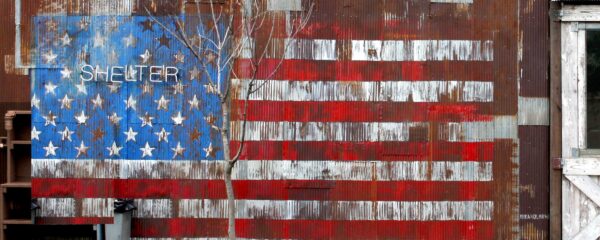Federal Judge Blocks Hazleton Anti-Immigrant Ordinance
New Law Would Cause "Irreparable Harm" to Residents, Judge Says
FOR IMMEDIATE RELEASE
CONTACT: media@aclu.org
SCRANTON, PA -- A federal judge today issued a temporary order blocking anti-immigrant ordinances from being enforced in Hazleton, Pennsylvania, noting that the laws could cause “irreparable harm” to the city’s residents. The ordinances were challenged in court by local business owners, landlords and residents who would be negatively impacted by the laws.
In issuing the order, Judge James M. Munley cited examples of citizens and non-citizens who stand to risk “housing, livelihood, and education” if the ordinances are enforced, including Brenda Lee Mieles, a United States citizen who may be evicted from her residence because of her inability to establish her citizenship, and Rosa and Jose Luis Lechuga, who continue to suffer a great loss of business in their store and restaurant. In contrast, he found, the city had not supported any of its “vague complaints about the presence of illegal immigrants” with evidence or statistics.
“We find it in the public interest to protect residents’ access to homes, education, jobs and businesses,” wrote Judge Munley. “Plaintiff has raised serious claims and there is a reasonable probability of success on the merits on one or more of the claims.”
The decision was welcomed by the coalition representing the Hazletonians challenging the ordinances: the American Civil Liberties Union, the Puerto Rican Legal Defense and Education Fund, the Community Justice Project, the law firm of Cozen O’Connor and local attorneys George Barron, David Vaida and Barry Dyller.
“We are gratified by today’s ruling, which prevents these ordinances from being enforced while our challenge continues,” said Witold Walczak, Legal Director of the ACLU of Pennsylvania. “The judge recognized that Hazleton’s laws put all sorts of people at serious risk and that we have raised serious challenges to its legality.”
The ordinances, which require all tenants in the city of Hazleton to satisfy city officials that they meet vague immigration-status requirements, would punish landlords for renting to “illegal aliens,” and would punish business owners and others for employing “unlawful workers.” Today’s temporary restraining order will prevent the city from enacting the laws until the court can determine whether they are constitutional.
“We are extremely pleased that the court understood the significance of what Hazleton was about to do,” said Cesar A. Perales, President and General Counsel of the Puerto Rican Legal Defense and Education Fund. “Hazleton wishes to take over the immigration policies of this country and distort them to achieve its goal of terrifying immigrants, especially Latinos, into leaving town. This search and destroy mentality has no place in the American justice system.”
Omar Jadwat of the national ACLU Immigrants’ Rights Project, added, “Other municipalities that are considering similar laws should take note. These ordinances will be challenged and are plainly both unwise and dangerous.”
The City Council approved the new ordinances recently to replace a similar law that was scrapped following a federal lawsuit filed by the coalition. The groups filed a new complaint yesterday charging that the revised ordinances continue to violate the Constitution and other laws.
According to the groups, many Hispanics have already left Hazleton and Hispanic-owned businesses are struggling to stay open.
“As business owners and property owners, we have no experience or guidance in examining the immigration status of our clients,” said Rudy Espinal of the Hazleton Hispanic Business Association, in an affidavit filed yesterday. “The city has created an environment of fear, uncertainty and confusion among the populace of Hazleton as well as those who want to live or do business here.”
Today’s order is online at: www.aclu.org/immigrants/gen/27227lgl20061031.html
For more information on this case, go to www.aclu.org/immigrants/discrim/27217prs20061030.html


